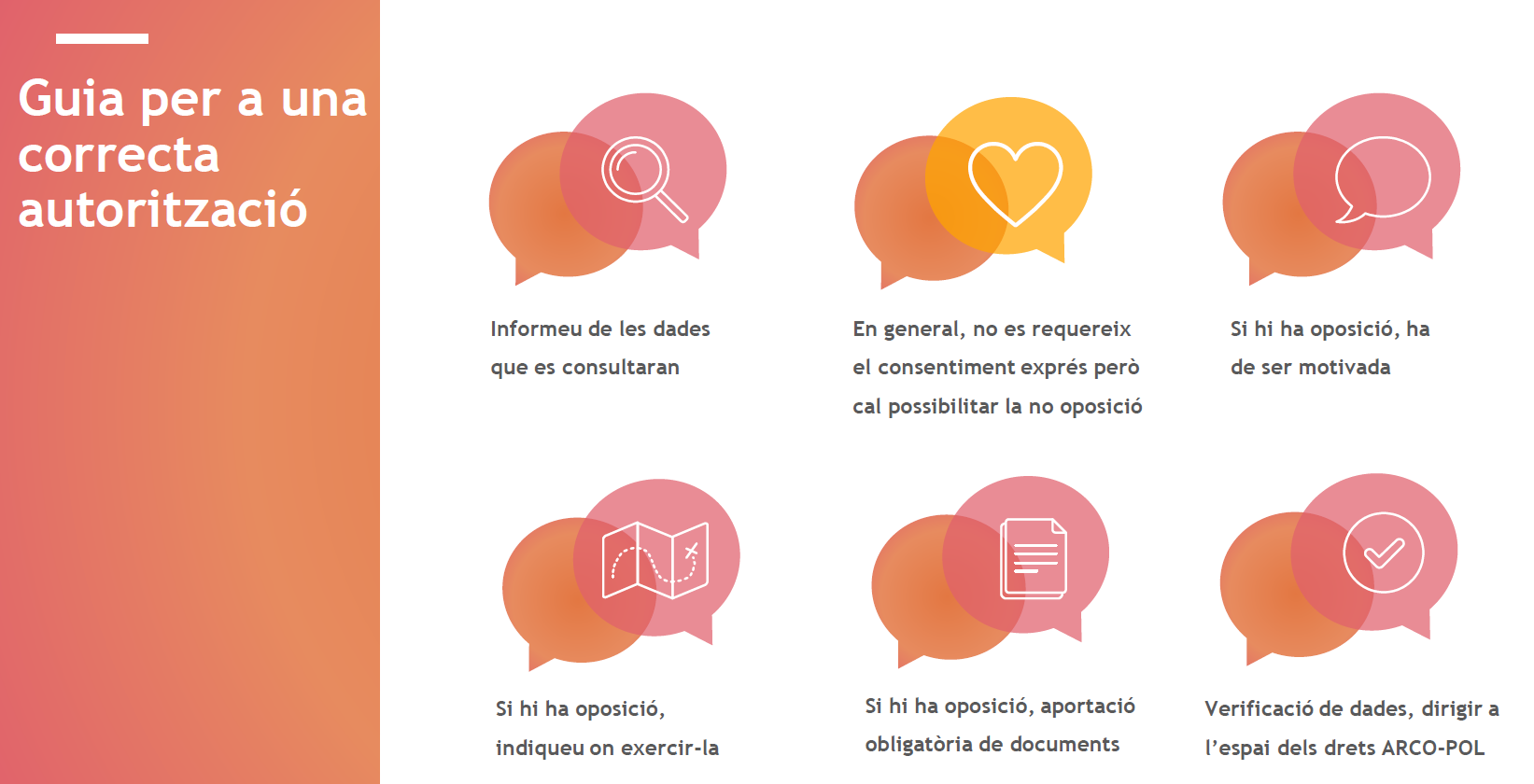The General Secretariat for Digital Administration establishes a series of considerations regarding the correct request for citizen consent . These considerations must be taken into account to successfully process authorization for the data verification and consultation services managed by the Data Intermediation Platform (PID).
Below is a summary to serve as a guide when developing your regulations and forms:

1. The citizen must be informed of the data to be consulted (principle of transparency). There are two ways to do this:
- You can include a list in the application form with the data to be consulted.
- Refer to the section of the rule that regulates the need for consultation.
We recommend that you use a specific form for this procedure, as generic data query forms are not usually accepted.
2. In general, the consultations will be covered by article 6.1c of Regulation (EU) 2016/679 and will not require express consent . This means that, in general, you should not use the formula “I authorize…” and that it should be reserved mainly for situations where tax data is needed.
However, it is necessary to give the possibility to citizen to oppose the consultation of data . Therefore, in the same form we can find two types of consent:
- Express consent (tax data)
- No opposition (remaining data)
3. If this opposition occurs, must be motivated . The PID indicates that if the citizen is not required to justify his opposition, this will not be a reason to stop the request, since the rights are not affected. It is recommended to justify the opposition to prevent the Administrations from encountering indiscriminate oppositions to the consultation of data (what is known as opposition “ad notum”, at will) and that these have as their objective the concealment or falsification of data.
4. It is necessary that the application form or the bases of the call clearly inform the citizen where he can exercise his rights if he wishes to object in a motivated manner .
5. In the event that the citizen expresses a reasoned opposition, he/she must provide the following documents: to which he has expressed his opposition. If he does not do so, the application cannot be approved.
It is recommended that administrative procedures and electronic forms allow citizens to exercise their right to object and provide the necessary documentation at the same time as submitting the application. According to the PID, this helps to avoid delays and inefficiencies in the management of the procedure.
6. In the event of data verification, that is, when the citizen provides the information and the system returns a yes/no, a specific form for that procedure will not be necessary to exercise the right of opposition. It will be sufficient to have the one that is already enabled to exercise this right on the data that the citizen provides (exercise of ARCO-POL rights).
You might be interested in:




 Copy link
Copy link